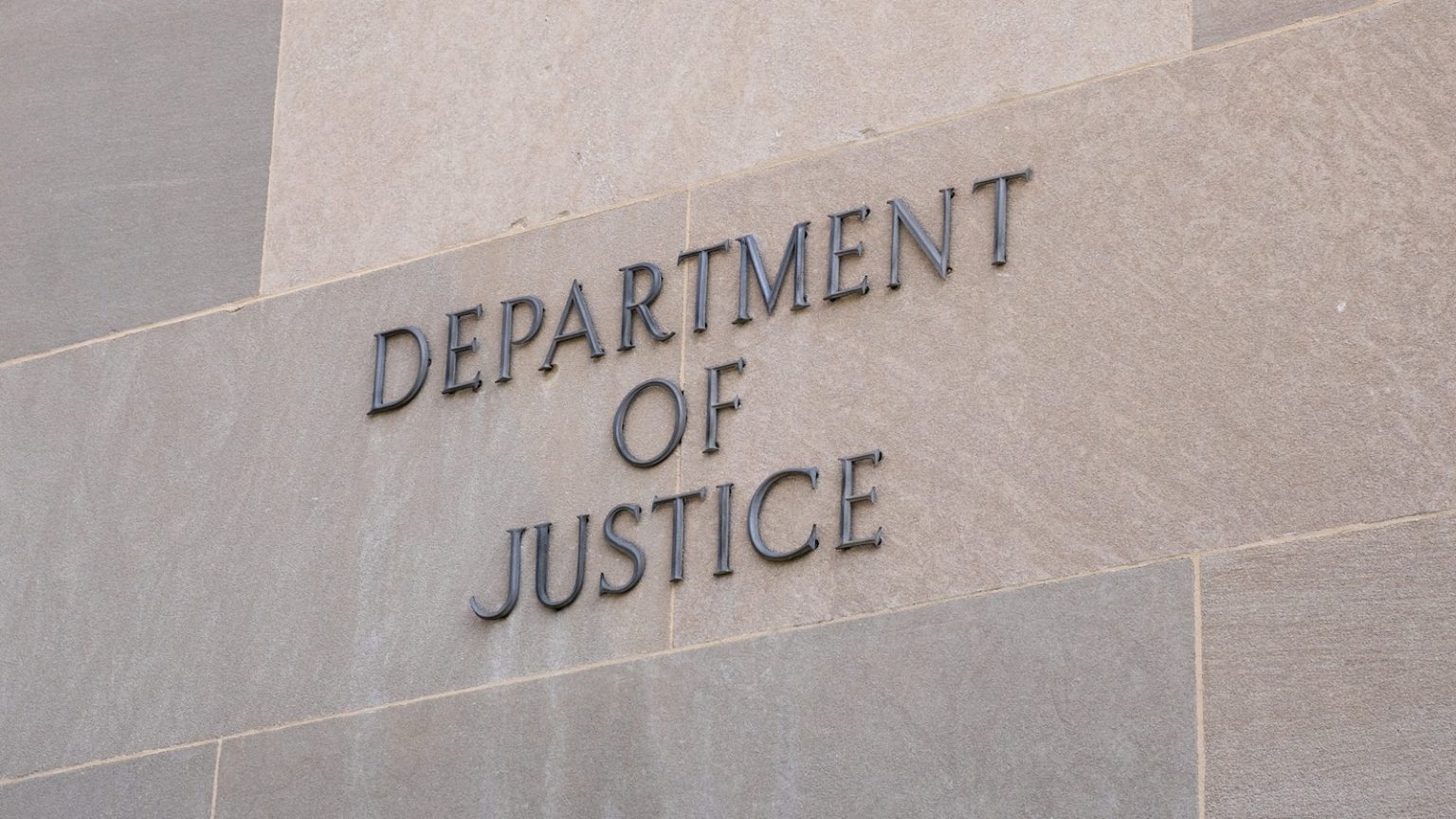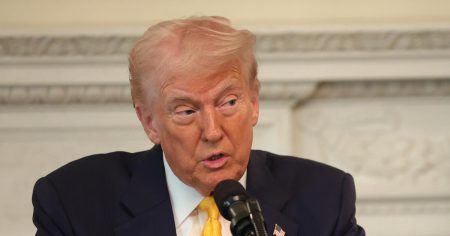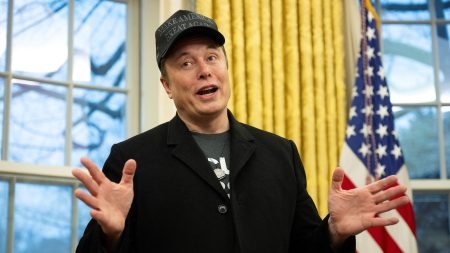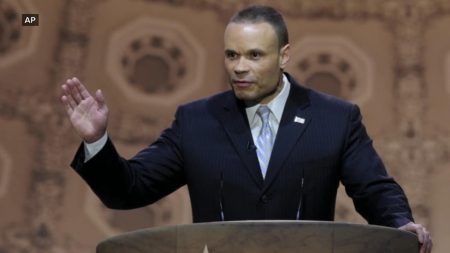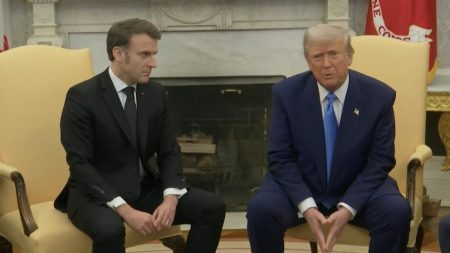Denise Cheung’s Abrupt Resignation: A High-Stakes Departure Amid Political Pressure
In a shocking turn of events, Denise Cheung, the chief of the criminal division at the U.S. Attorney’s Office for Washington, D.C., resigned abruptly on Tuesday. Her departure came amid growing pressure from top Trump Justice Department appointees to intervene in a Biden administration-era environmental initiative. According to sources familiar with the matter, Cheung faced intense scrutiny from DOJ leadership to freeze assets linked to the Environmental Protection Agency’s (EPA) "Greenhouse Gas Reduction Fund," a program established under President Biden. Cheung reportedly believed that the request lacked the necessary legal foundation to justify a grand jury investigation, leading to her decision to step down. Her resignation letter, addressed to the office’s employees, did not explicitly detail the reasons behind her departure but urged her colleagues to remain committed to upholding the Constitution and pursuing justice without fear or prejudice. "Please continue to support one another, to fulfill your commitment to pursuing justice without fear or prejudice, and to be kind to, and take care of, yourselves," she wrote. "You are the resource our nation has."
The Controversy Surrounding the EPA Funding Initiative
At the heart of the controversy is the EPA’s "Greenhouse Gas Reduction Fund," a Biden administration initiative aimed at addressing climate change by providing funding for projects that reduce greenhouse gas emissions. The program has been a target of criticism from Republican officials, who have raised questions about its legality and the allocation of funds. EPA Administrator Lee Zeldin has reportedly been in discussions with the DOJ over the agency’s efforts to rescind contracts tied to the fund. However, legal experts argue that DOJ intervention in such matters can only occur if prosecutors can credibly allege that the funds are linked to criminal activity. Cheung’s resignation appears to stem from her refusal to launch a formal criminal investigation into the initiative, as she believed the request lacked proper predication—a legal term referring to the sufficient basis for opening an investigation.
Political Tensions and the Role of Trump Appointees
The pressure on Cheung to act on the EPA funding initiative is widely seen as part of a broader pattern of political interference in the Justice Department under the Trump administration. Two key figures involved in the matter are acting Deputy Attorney General Emil Bove and interim U.S. Attorney Ed Martin, both of whom have been accused of advancing Trump’s political agenda within the DOJ. Cheung’s resignation has raised concerns among career prosecutors about the independence of the Justice Department and the potential politicization of its investigations. The timing of her resignation—just one day after President Trump announced Ed Martin as his nominee for U.S. attorney for Washington, D.C.—has further fueled speculation about the motivations behind the push to investigate the EPA initiative. Martin, who has faced criticism for his controversial actions and statements during his tenure as interim U.S. attorney, has been a polarizing figure within the office. His nomination has sparked growing consternation among career prosecutors, who fear that his leadership could undermine the office’s credibility and independence.
Ed Martin’s Controversial Past and Growing Concerns
Ed Martin’s nomination as U.S. attorney for Washington, D.C., has been met with significant skepticism due to his controversial past. As ABC News has previously reported, Martin has represented defendants charged in connection with the January 6, 2021, riot at the U.S. Capitol and was present on Capitol grounds himself that day. While it remains unclear whether he entered restricted areas, his involvement in the events of that day has raised questions about his suitability for the role of U.S. attorney. Martin’s actions since taking over as interim U.S. attorney have only added to the concerns, with career prosecutors expressing dismay over his decisions and statements. His leadership has been seen as part of a broader effort by the Trump administration to exert control over the Justice Department and influence sensitive investigations, potentially undermining the independence of the judiciary.
The Broader Implications for the Justice Department
Denise Cheung’s resignation has sent shockwaves through the Justice Department, highlighting the growing tensions between career prosecutors and political appointees. Her decision to step down underscores the challenges faced by law enforcement officials who are caught in the crossfire of political battles. The pressure to investigate the EPA funding initiative, despite lacking sufficient legal justification, raises serious questions about the politicization of the Justice Department under the Trump administration. Career prosecutors, who have long prided themselves on their independence and commitment to impartial justice, are increasingly concerned about the erosion of these principles. Cheung’s resignation serves as a stark reminder of the risks of political interference in the criminal justice system and the potential consequences for the rule of law in the United States.
Reaction and Response: A Call for Accountability
The news of Cheung’s resignation has sparked outrage among legal experts and lawmakers, with many calling for greater accountability within the Justice Department. Critics argue that the pressure on Cheung to investigate the EPA initiative highlights the dangers of political interference in the judiciary and the need for greater transparency in the decision-making process. A Justice Department spokesperson declined to comment on the matter, further fueling speculation about the circumstances surrounding Cheung’s departure. As the controversy continues to unfold, the focus will remain on the actions of Trump appointees like Emil Bove and Ed Martin, whose conduct has raised serious concerns about the integrity of the Justice Department. Denise Cheung’s resignation serves as a powerful reminder of the challenges faced by public servants who are committed to upholding the principles of justice in the face of political pressure.





